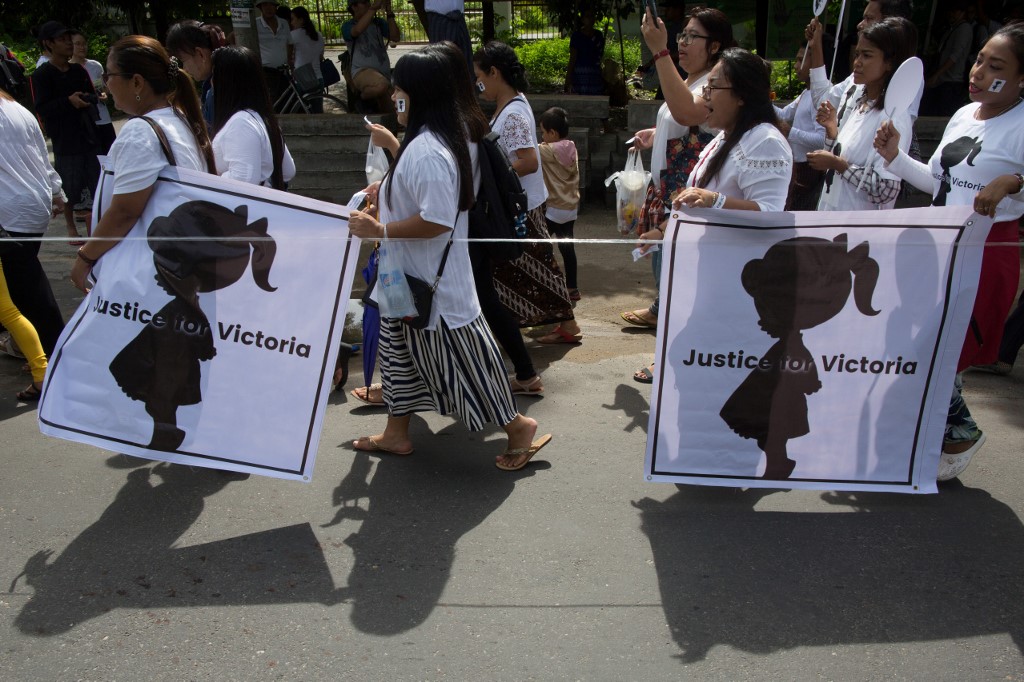
Myanmar police revealed the personal details of a three-year-old rape victim and her mother yesterday after the public and media protected the privacy of the toddler for eight months.
Documents showing their names were uploaded to the official Myanmar police Facebook page after a live-streamed press conference in Naypyidaw addressing the release of a suspect, who is widely doubted to be the perpetrator.
The post was removed after 30 minutes, but identifying the name breaches Article 96 of the Child Rights Law 2019, which punishes the identification of children involved in legal cases with fines and up to a year in jail.
The father of the girl—who was given the pseudonym Victoria—told BBC Burmese he would file a legal complaint against the police.
Victoria was not named in media coverage "to protect my three-year-old daughter's life and future," he said.
"But now, the Myanmar police force not only released her name but our names and jobs during their press conference and on their Facebook page [called] Ye Zar Ni. This is not just unfair but also a crime. It's a big blow to my family. I'm going to sue them no matter who or what they are."
Public anger continues to rise over the case, which—judged on netizens’ comments underneath the police’s post—has been handled as competently as the bundled press conference.
On Wednesday, a Naypyidaw court dismissed charges against main suspect Aung Gyi, a nursery school driver who was initially arrested in May. This was the second time he was arrested and then released because of insufficient evidence.
Police Brigadier General Soe Naing Oo told the press conference the release of Aung Gyi was “premature,” adding that seven of the 27 witnesses were yet to testify.
The court is attempting to recover missing CCTV footage believed to be key evidence, but police said it was irretrievable. Such claims are likely to stoke rumours that the actual attackers had links to the school and police.
Police cited tests showing semen on Aung Gyi's underwear for the rape charges, although no testimonials pointed to him as the perpetrator. A DNA test later showed that evidence obtained at the crime scene did not match Aung Gyi.
Outrage over the rape of the child—then aged two years old—spilled onto the streets in July as thousands of protestors marched in Yangon following online campaign “Justice for Victoria.”

